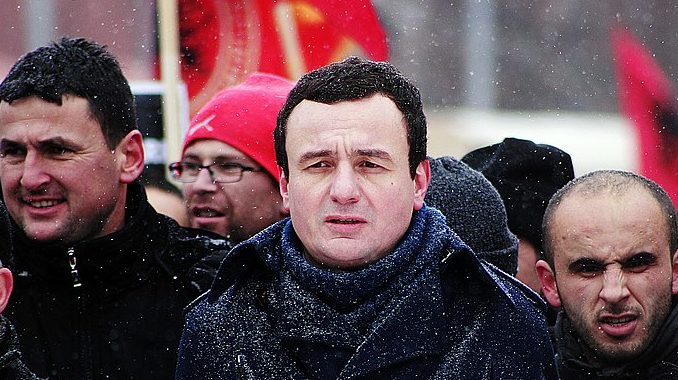
The Prime Minister of Kosovo has lost a no confidence vote in their Parliament, due primarily to his handling of the country’s coronavirus response. Prime Minister Albin Kurti lost the vote decisively despite being only two months into his first term in office, with 82 of the country’s 120 seated members voting against his retention.
Kurti had been the leader of a coalition government formed between his Vetevendosje party and the Democratic League of Kosovo (LDK). LDK leaders had been urging an aggressive response to the virus, but Kurti has been insistent there is no reason for a state of emergency to be called. Kosovo, a country of less than two million, currently has at least 70 verified cases and one death due to covid-19; the lack of aggressive measures leaves their actual totals uncertain. Their first cases were diagnosed on March 13, and the patients were believed to be completely isolated at that time.
Interior Minister Agim Veliu, the coalition representative for LDK, was fired on March 18 over his support for aggressive coronavirus containment measures. That firing roiled the internal political world of Kosovo government and triggered the no-confidence vote.
Kurti, politically center-left, had previously caused internal strife over a decision to roll back some of the tariffs against rival and neighbor Serbia. The Serbians, with Russian backing, have been working since 2008 to keep Kosovo from being recognized as an independent nation in the United Nations. Tariffs of 100% on Serbian goods had been set in place by prior governments in an effort to pressure Serbia to relinquish its claim to Kosovo land. Kurti’s concessions on the tariffs had prompted the United States to withdraw $50 million in aid to the nation, although Kurti had insisted that some level of drawdown was necessary to facilitate a land swap with Serbia.
Because the public health crisis has temporarily negated the ability for a new election to take place, government members are attempting to determine what their next steps should be.
